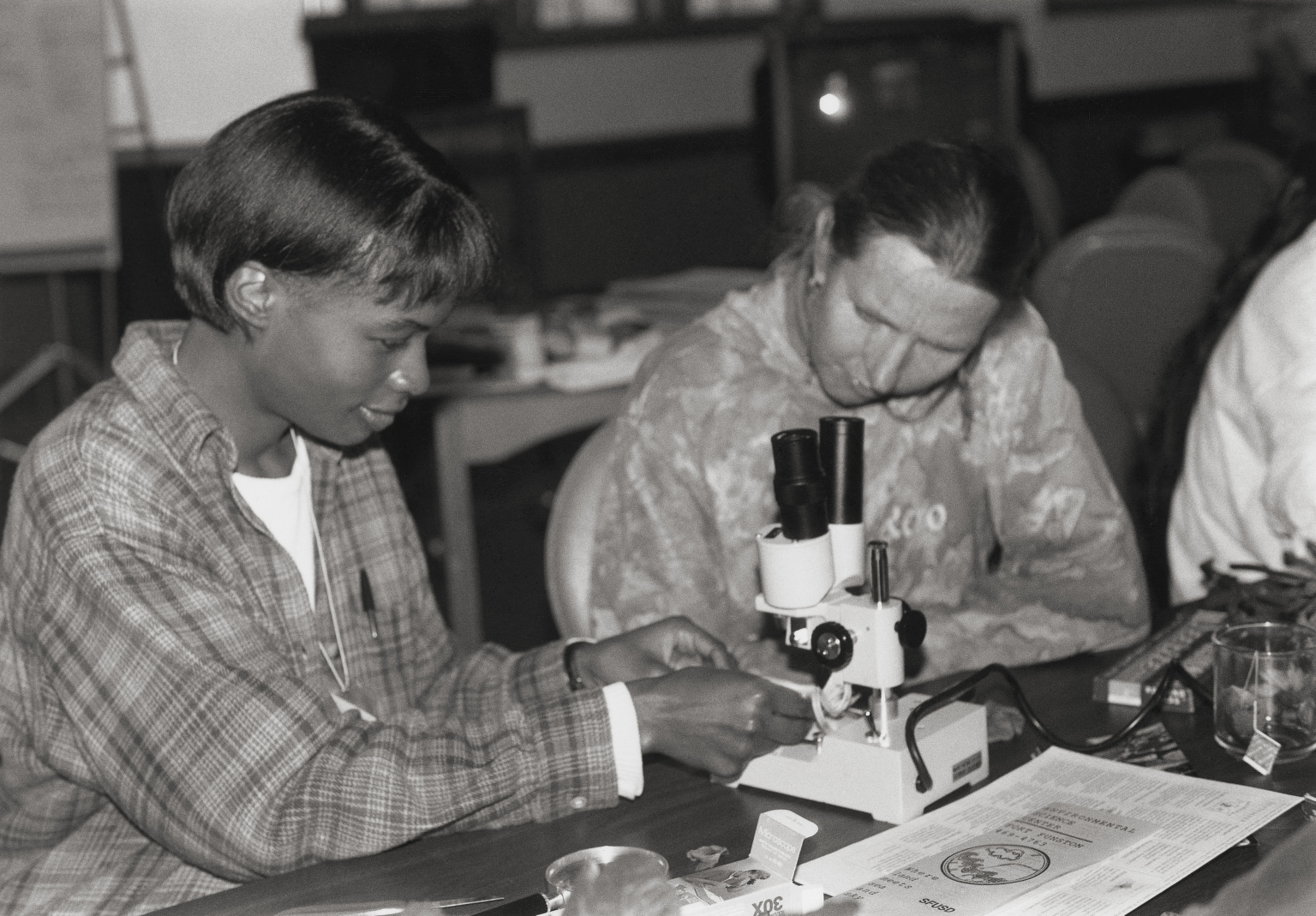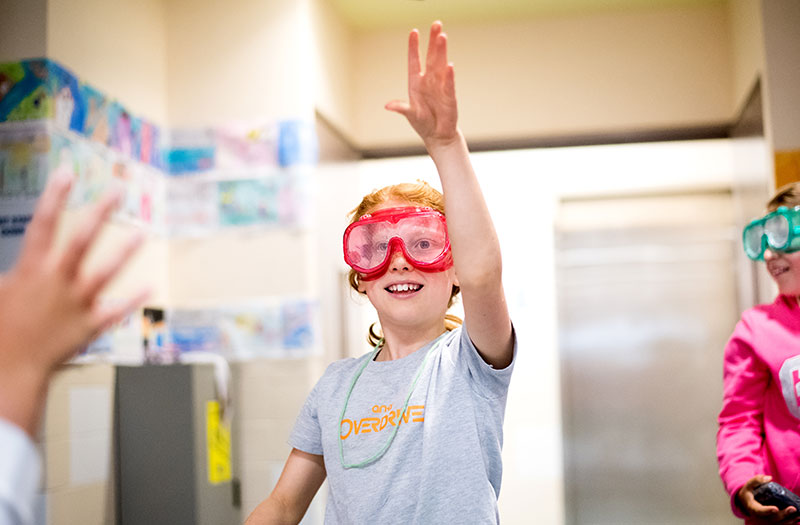Learn about a few of SEP’s past programs.
The Cellular Construction Workshop was a 10-day summer workshop for high school teachers and students, that ran from the summer of 2017 to the summer of 2025. This NSF-funded program, was part of the Center for Cellular Construction, and engaged students and teachers in design challenges as they learned together about the field of cellular engineering.
Cellular engineering is a field of biology that uses cells to solve complex problems. It applies what we know about cells, including how they’re built, make decisions, and accomplish tasks, to develop new technology based on this knowledge. We need a new generation of scientists to help us tinker, build, and figure out how things work so that we can use cellular engineering to make the world a better place.
Students and teachers collaborated in teams to conduct experiments to observe how cells work, and use robots and coding to copy how cells make decisions, and try to solve a real-world problem using what they’ve learned about cells and coding.
Browse the workshop materials (lesson ideas, worksheets, and more) to bring cellular engineering into your classroom!
With support from an NIH Science Education Partnership Award, SEP led SF Health Investigators (SFHI) from 2015 to 2020. SFHI was designed to build a community of high school student researchers who, over the course of a year, would learn about health issues affecting their communities, conduct surveys within those communities to understand the existing gaps in knowledge and misconceptions, use data from the surveys to inform the development of health message campaigns, and disseminate those messages. Each year’s cohorts of students tackled a different health topic: infectious diseases, Zika, and vaccines (Year 1); antibiotic resistance (Year 2); cancer prevention and screening (Year 3); and flu prevention and vaccination (Year 4).
Check out the health messaging campaigns developed by SFHI Student Researchers:
In collaboration with education researchers from UC Berkeley, the SFHI team developed and validated a novel survey instrument to measure students’ researcher identity. Learn more about this survey and SFHI in these two publications:
“Seeking a Better Balance Between Efficiency and Interpretability: Comparing the Likert Response Format With the Guttman Response Format” Psychological Methods, January 2022 by Mark Wilson, Shruti Bathia, Linda Morell, Perman Gochyyev, Bon W. Koo, and Rebecca Smith.
“Examining the Effects of a Peer-Learning Research Communityon the Development of Students’ Researcher Identity, Confidence, and STEM Interest and Engagement” Journal of STEM Outreach, Vol. 4, Issue 1, July 2021 by Bon W. Koo, Shruti Bathia, Linda Morell, Perman Gochyyev, Michelle Phillips, Mark Wilson, and Rebecca Smith
With support from the National Science Foundation, SEP led the Triad Project from 1994 to 2003. Triad’s two major initiatives were interwoven: 1) professional development in gender equitable science teaching for participating teachers and scientists and 2) implementation of after-school Triad Science Clubs for students in SFUSD elementary and middle schools. Triad built an extensive community of partnership specialists, education researchers, research scientists, K-12 teachers, K-12 students and families engaged in developing innovative approaches to gender equitable science teaching. This collaborative work ultimately led to the development of the Triad Framework for Equitable Science Teaching. This Framework translated the research literature in gender equitable science teaching into concrete goals and teaching strategies for educational settings, divided into student goals, science goals, and teaching goals. This Framework and reflections written by Triad teacher and scientist participants ultimately led to the publication in 2008 of Girls in Science: A Framework for Action by NSTA Press.
Available through the NSTA Science Store.

All of SEP’s programs are offered free-of-charge. To do this work, SEP must annually raise nearly $2 million. Every donation brings us closer to that goal and helps to make this important work possible.

As part of UCSF, SEP is a 501(c)3 non-profit. All donations are tax deductible to the fullest extent of the law. Please let us know if your company participates in a matching gift program so that we can extend the benefit of your generosity.